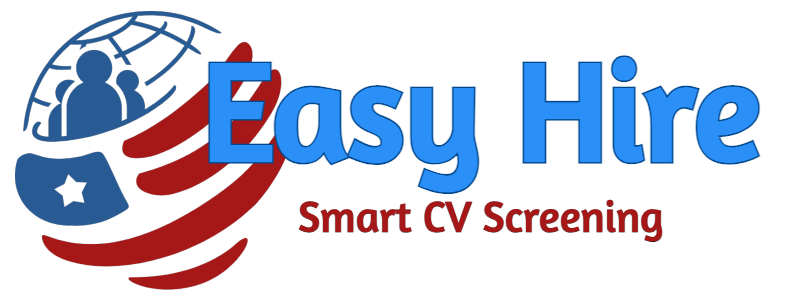The Future of Recruitment: AI and Beyond
Upcoming trends in AI-driven recruitment and hiring technology.
The Future of Recruitment: AI and Beyond
The recruitment landscape is undergoing a seismic shift, powered by advancements in artificial intelligence (AI). From automating repetitive tasks to enhancing candidate experiences, AI is transforming how companies attract, assess, and hire talent. But what does the future hold for AI-driven recruitment, and how can businesses stay ahead of the curve?
In this comprehensive guide, we’ll explore the role of AI in hiring, its benefits, challenges, and the emerging trends shaping the future of recruitment. Whether you’re an HR professional, recruiter, or business owner, this article will provide actionable insights to help you leverage AI for smarter, more efficient hiring.
What is AI in Recruitment?
AI in recruitment refers to the use of artificial intelligence technologies to streamline and enhance the hiring process. This includes tools like resume screening algorithms, chatbots for candidate engagement, predictive analytics for identifying top talent, and more.
By automating time-consuming tasks and analyzing vast amounts of data, AI enables recruiters to focus on strategic activities like relationship-building and decision-making.
Why is AI in Recruitment Important?
The recruitment industry is facing unprecedented challenges, from talent shortages to growing competition for top candidates. AI offers scalable solutions to these problems, making hiring faster, fairer, and more efficient.
For instance:
- The global AI recruitment market is projected to reach $590 billion by 2027.
- 76% of hiring managers believe AI is essential for improving recruitment processes.
AI not only addresses operational inefficiencies but also helps organizations reduce bias, improve diversity, and make data-driven hiring decisions.
Key Benefits of AI in Recruitment
1. Time and Cost Savings
AI automates repetitive tasks like resume screening and interview scheduling, freeing up recruiters to focus on high-value activities.
2. Bias Reduction
AI-powered tools can minimize unconscious bias by focusing on skills and qualifications rather than subjective factors.
3. Improved Candidate Experience
Chatbots and AI-driven communication tools provide instant responses and personalized interactions, enhancing the candidate journey.
4. Data-Driven Decision Making
Predictive analytics helps identify top candidates based on historical data and performance metrics.
Challenges and Misconceptions
While AI offers numerous benefits, it’s not without challenges. Common misconceptions include:
“AI will replace human recruiters.”
In reality, AI complements recruiters by handling repetitive tasks, allowing them to focus on strategy and relationship-building.
“AI is too expensive for small businesses.”
Many affordable AI recruitment tools are now available, making it accessible to businesses of all sizes.
How to Implement AI in Your Hiring Process
1. Identify Pain Points
Assess your recruitment process to identify areas where AI can add value, such as resume screening or candidate engagement.
2. Choose the Right Tools
Invest in AI-powered tools that align with your hiring goals, such as applicant tracking systems (ATS) or candidate assessment platforms.
3. Train Your Team
Ensure your HR team is comfortable using AI tools and understands their benefits and limitations.
4. Measure Success
Track key metrics like time-to-hire, cost-per-hire, and candidate satisfaction to evaluate the impact of AI on your recruitment process.
Future Trends in AI Recruitment
1. Hyper-Personalization
AI will enable even more personalized candidate experiences, from tailored job recommendations to customized communication.
2. Advanced Predictive Analytics
Predictive models will become more accurate, helping companies identify top talent with greater precision.
3. Integration with HR Tech
AI will seamlessly integrate with HR platforms, creating a unified ecosystem for recruitment and employee management.
4. Ethical AI Practices
As AI adoption grows, there will be a stronger focus on ethical AI use, including transparency, fairness, and accountability.
FAQ
Q: Can AI eliminate recruitment bias entirely?
A: While AI can significantly reduce bias, it’s not foolproof. Regularly auditing AI algorithms and ensuring diverse training data is crucial.
Q: Is AI suitable for all industries?
A: Yes, AI can be adapted to meet the unique needs of different industries, from tech startups to healthcare organizations.
Q: How can I ensure data privacy when using AI?
A: Choose AI tools that comply with data protection regulations like GDPR and implement strict data security measures.
Conclusion
AI is not just a buzzword; it’s a game-changer for the recruitment industry. By embracing AI, organizations can streamline their hiring processes, reduce bias, and attract top talent in a competitive market.
Ready to revolutionize your recruitment strategy? Explore future of AI in hiring and take the first step toward the future of hiring.
By staying informed and adopting innovative technologies, you can position your business for success in the ever-evolving world of recruitment. The future is here—don’t get left behind.
